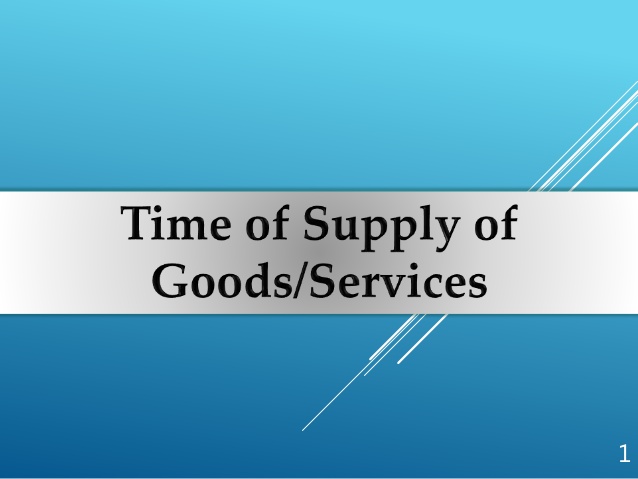
In order to calculate and discharge a tax liability, it is important to know the date when the tax liability arises i.e. the date on which the charging event has occurred. Point of taxation under GST is the point in time when goods are deemed to have been provided and services are deemed to be rendered. The concept of point of taxation is not new, a similar concept was also there in earlier tax regime. The point of taxation enables a person to determine the tax rate, value and due date for payment of taxes.
Under GST, time of supply concept helps to determine the rate of tax, value and due date for payment. Time of supply of goods and service is determined by two different sections of the CGST Act where Section 12 of CGST Act deals with time of supply of goods and section 13 deals with time of supply of service.
Determining time of supply of goods under section 12(2) (a)
Time of supply in case of goods shall be earlier of the following:
According to Section 31(1) of CGST Act, a registered person under section 22 or 24 is required to issue invoice before or at the time of –
However, as per Notification number 66/2017-Central Tax dated 15 November 2017, the supplier of goods has to make payment of tax upon issuance of invoice only under section 12(2) (a).
Reverse charge mechanism under section 12(3)
Time of supply of goods under reverse charge mechanism shall be earlier of the following-
Time of supply of voucher under section 12(4)
Time of supply of goods in case of supply of voucher by a supplier shall be –
Time of supply under section 12(5)
Time of supply when provisions of sub section 2/3/4 are not applicable shall be determined as follows-
Time of supply for addition to the value of supply under section 12(6)
Time of supply in case where there is addition to the value of supply by way of interest, late fee or penalty for delayed payment of any consideration shall be the date on which the supplier receives such additional amount.
Thus, time of Supply is a crucial concept to determine the actual tax point which is important for a taxable person. If the provisions of TOS are not applied carefully, then the applicability of tax rate along with the due date of payment may get incorrect which in turn may result in charging of penalty.
If you are looking to keep yourself updated about the recent compliances or requires assistance in filing of GST returns, GST assessments and GST audits, our team of experts can assist you in complying with the GST regime.
We can also assist you in setting up your business in India, accounting, bookkeeping, payroll, auditing, taxation, secretarial compliances, and trademark registration, business structuring and advisory services. If you require any assistance in this regard, kindly click here.